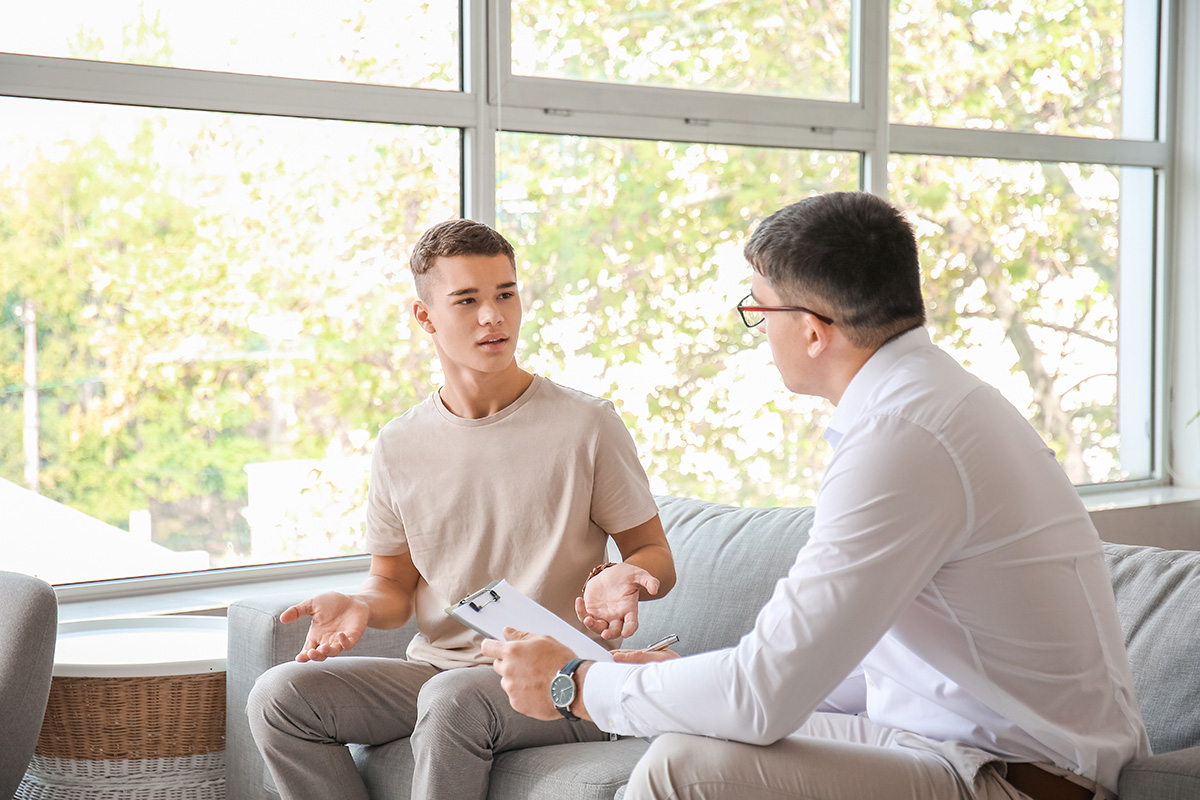Discussing the Aftermath of Violent Events with Teens
The Department of Education has reported that in the 2020-2021 school year, there were 93 school shootings that resulted in deaths or injuries — the most in any year since the 2000-2001 school year. Children around the country have been confronted with gun violence in one of the places where they should feel most safe. While no parent wants to have to help their child in processing violent events like school shootings, being prepared can ensure you’re there to guide your child in a healthy, supportive way.
Whether your child has been through a traumatic experience, has a friend who has, or is working to process events on the news, having some strategies for discussing violent events on hand can be helpful. Learn more about our recommendations for talking to your teen about violence.
Why Discussing School Shootings Is Important
In the aftermath of violence, there are typically many emotions that children and teens are dealing with. While it’s normal to feel scared or angry, talking about the event can help them process those feelings and work through the experience. Discussing violent events not only helps teens work through their emotions, but it also allows them to learn how to cope with such events in a more constructive way.
Tips for Discussing Violent Events with Teens
1. Listen Without Judgment
The emotions that teens are dealing with in the aftermath of a violent event can be overwhelming. They might feel angry about the situation, scared for their safety, or even guilty if they knew someone involved. As a parent, it’s important to listen to your child without passing judgment. Being in a safe space as they are processing violent events will help them manage their emotions without feeling judged or shamed.
2. Model Ways to Cope
It’s also important to remember as a parent that you are a role model for your child. Modeling healthy ways to cope with the emotions that come with experiencing and discussing violent events is essential. Acknowledge your own feelings and talk about how you’re working through them in a constructive way, whether that’s suggesting ways to increase safety in your community, being mindful of the news you’re consuming, or taking time for self-care.
3. Provide Resources and Support
Providing resources and support is especially critical if gun violence has impacted your child’s school or they have another connection to the event. Mental health professionals understand the role that violence can play in trauma disorders. Whether you contact a school counselor, therapist, or psychologist, they can help with:
- Processing violent events
- Developing healthy coping skills
- Identifying helpful support systems
- Educating teens about mental health
- Teaching them how to advocate for their own needs
4. Talk About Ways to Take Action
In the aftermath of school shootings and other acts of violence, teens might feel helpless. Remind them of the power of their voice when discussing violent events. Encourage them to get involved in the conversation, whether it’s by volunteering, reaching out to legislators, or even joining a support group. This can channel their emotions in a positive direction and help them feel empowered.
Help for Teen Mental Health at Ascend
Discussing violent events can be a daunting task for parents, but it’s an important one. Ascend offers teen mental health treatment that can help adolescents who have been through traumatic events. With residential and outpatient treatment facilities throughout Southern California, Ascend provides a safe and supportive environment where teens can process their emotions and foster recovery.
Processing violent events and discussing school shootings can be easier with the help of a mental health professional. Reach out to our team at 310.388.3713 or contact us online to learn more about joining one of our treatment programs.



